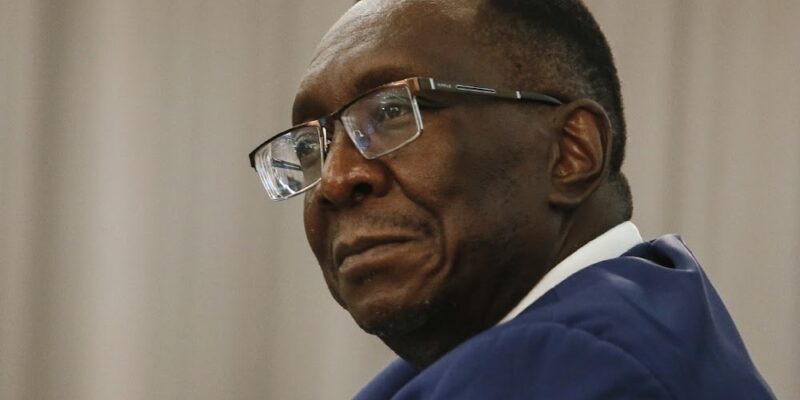The Personal Injury Plaintiff Lawyers Association (Pipla), whose members are largely involved in lodging claims with the Road Accident Fund (RAF), is seeking direct access to the Constitutional Court to set aside a mediation directive issued by the Gauteng High Court division.
The challenge pits the association against the office of Gauteng judge president, Dunstan Mlambo — one of the front-runners for the vacant role of deputy chief justice.
Mlambo in April made it mandatory for civil cases to go through mediation before trial as a measure to curb an intolerable caseload in high courts, which had started issuing dates for civil case trials to be heard in 2031.
This as the court’s leadership tries to manage its heavy caseload, which has resulted in delays in matters being heard. The Gauteng division is SA’s busiest court.
Mlambo’s deputy, Roland Sutherland, last year painted a dire picture of the backlog facing the court.
The situation is so bad that RAF cases have trial dates allocated as far ahead as April 2029.
One of the weaknesses in the system is that the number of cases set down cannot be heard sooner by the number of available judges or acting judges, as well as litigants shunning alternative dispute resolution.
“The general civil trial roll for RAF cases has reached a staggering four years and nine months’ lead time. For this, I apologise on behalf of the court,” Sutherland said.
Pipla said the directive by Mlambo was not only unconstitutional but also unworkable.
“The matter is of public importance. The poor and vulnerable [in Gauteng], who are unable to afford mediation, will be severely prejudiced and experience a violation of their right to equal protection under the law and access to court,” the association said in court papers filed with the apex court.
“Similarly, the litigant who is unsuccessful during mediation will in effect have to pay legal fees ‘again’ to have the matter adjudicated in court. Litigation, in most cases, will have the potential to become much more expensive than before.”
The Constitutional Court has historically been reluctant to grant applications for direct access — a mechanism in SA’s law that allows litigants to bypass lower courts under exceptional circumstances and with the court’s leave.
Mlambo’s directive said the court’s caseload was untenable and infringed on the right to access to courts as guaranteed by the constitution, saying the court’s leadership had to take “drastic measures” to address the situation.
One of the arguments put forward by Mlambo is that an “overwhelming majority” of matters on the trial roll of the Gauteng division are settled on the trial day.
“As things stand, our civil court roll is inundated with matters that can be resolved without the intervention of a judge. The proof of this can be found in the fact that more than 85% of trial matters that have waited years to be on the trial roll always settle upon the arrival of the trial date without judicial intervention,” noted Mlambo’s directive.
However, Pipla, in its papers, poured cold water on reasons put forward by Mlambo.
“The directive claims that statistical evidence shows that 85% of matters settle on the morning of the trial. Pipla does not have access to these statistics, but the experiences of its members paint a different picture,” it said.
“Only 7.8% of Pipla’s members (comprising approximately 450 firms and individual practitioners) experience settlement of 80%-100% of their cases on the day of trial. Significantly, 53.6% of the members’ cases do not settle on the day of the trial.”
Mlambo is among the candidates vying for the deputy chief justice role — left vacant when Mandisa Maya was elevated to the role of chief justice last year.
Other candidates in the running include Cagney Musi, judge president of the Free State, and Pule Tlaletsi, the head of the Northern Cape.
The three-horse race follows the withdrawal of president of the Supreme Court of Appeal Mahube Molemela.
With Sinesipho Schrieber










Comments